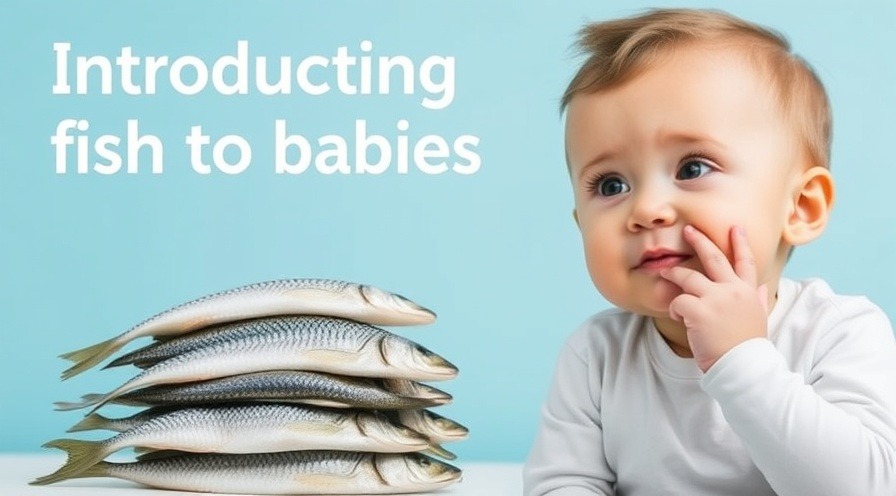
Understanding the Benefits of Fish for Your Baby
Introducing your baby to solids is a milestone many parents look forward to, and adding fish to their diet can be a nutritional game-changer. Fish is not only rich in essential protein and omega-3 fatty acids, but it also plays a crucial role in supporting your baby's brain, eye development, and overall growth. For parents grappling with the dilemma of when and how to introduce fish to their little ones, research and expert guidelines provide valuable insights on navigating this journey.
In 'Why Fish Is a Superfood for Babies (And How to Serve It)', the discussion dives into the essential benefits of fish in a child's diet, prompting deeper analysis on how to safely introduce this nutritious food to infants.
When Can Your Baby Eat Fish?
According to the American Academy of Pediatrics, most babies can start eating fish around the age of 6 months. This is when solid foods are typically introduced. Starting early can help expand your baby's palate and may even reduce the risk of developing food allergies. Nonetheless, it's essential to pay attention to your baby's individual health and consult with a pediatrician if needed.
The Nutritional Powerhouse: Fish
Fish provides an array of health benefits crucial for a baby's development. It is packed with omega-3 fatty acids like DHA and EPA, which support brain and eye development. Additionally, the protein content in fish is vital for building muscles and tissues. Other key nutrients such as vitamin D aid calcium absorption for strong bone health, while iron, zinc, and iodine contribute significantly to growth and metabolism.
Addressing Allergies: Introducing Fish Safely
Fish is recognized as a top allergen, leading many parents to worry about introducing it to their babies. Interestingly, recent studies suggest that an early introduction of fish might actually reduce allergy risks provided your baby doesn't have severe eczema or a diagnosed food allergy. Start with small amounts of fish and monitor your baby for any allergic reactions, such as rashes or difficulty breathing. If allergies run in your family, it's wise to consult your pediatrician before introducing new foods.
Avoiding Mercury: Choosing the Right Types of Fish
When introducing fish to your baby's diet, not all fish are created equal. Some fish, such as shark, swordfish, and king mackerel, have high mercury levels, which can adversely affect your baby's developing brain. Instead, opt for low-mercury options like salmon, cod, tilapia, and sardines. Light canned tuna can also be a safe choice, but should be given in moderation.

Preparing Fish for Your Baby: Tips and Techniques
Preparing fish for your baby might seem daunting, but it can be a straightforward process. Ensure the fish is fully cooked and flakes easily with a fork. Avoid heavy spices or salt, as babies' kidneys are sensitive to sodium. Depending on your baby's age, you might choose to mash or finely shred fish, mixing it into mashed vegetables or rice for a balanced meal. When introducing a new food, do so one at a time and wait for a few days to watch for any adverse reactions.
How Often Should Babies Eat Fish?
Consistency is key, and it's recommended for babies to have fish two times a week, just as adults do. Make sure it’s incorporated into a balanced diet rich in other iron and protein sources to maintain overall nutrition.
In conclusion, knowing when and how to introduce fish can be overwhelming for new parents, but by following guidelines and understanding the associated benefits, you can make informed decisions for your baby's dietary journey. The introduction of fish at a young age may establish healthy eating habits that could last a lifetime.
For parents wanting to ensure optimal health for their little ones, embracing fish as a superfood can offer significant advantages. Don't hesitate to consult your pediatrician for personalized guidance and to confidently navigate your baby's first meals!
 Add Row
Add Row  Add
Add 




Write A Comment